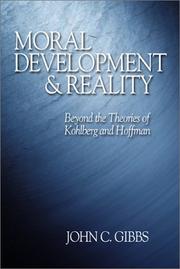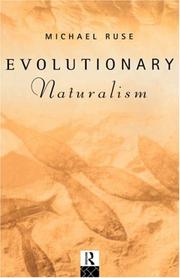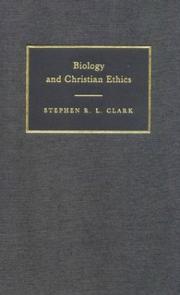| Listing 1 - 4 of 4 |
Sort by
|
Book
ISBN: 0674063074 9780674063075 9780674061446 0674061446 Year: 2011 Publisher: Cambridge, Mass. Harvard University Press
Abstract | Keywords | Export | Availability | Bookmark
 Loading...
Loading...Choose an application
- Reference Manager
- EndNote
- RefWorks (Direct export to RefWorks)
Principles of right and wrong guide the lives of almost all human beings, but we often see them as external to ourselves, outside our own control. In a revolutionary approach to the problems of moral philosophy, Philip Kitcher makes a provocative proposal: Instead of conceiving ethical commands as divine revelations or as the discoveries of brilliant thinkers, we should see our ethical practices as evolving over tens of thousands of years, as members of our species have worked out how to live together and prosper. Elaborating this radical new vision, Kitcher shows how the limited altruistic tendencies of our ancestors enabled a fragile social life, how our forebears learned to regulate their interactions with one another, and how human societies eventually grew into forms of previously unimaginable complexity. The most successful of the many millennia-old experiments in how to live, he contends, survive in our values today.Drawing on natural science, social science, and philosophy to develop an approach he calls "pragmatic naturalism," Kitcher reveals the power of an evolving ethics built around a few core principles-including justice and cooperation-but leaving room for a diversity of communities and modes of self-expression. Ethics emerges as a beautifully human phenomenon-permanently unfinished, collectively refined and distorted generation by generation. Our human values, Kitcher shows, can be understood not as a final system but as a project-the ethical project-in which our species has engaged for most of its history, and which has been central to who we are.
Ethics, Evolutionary. --- Ethics, Naturalistic --- Evolutionary ethics --- Naturalistic ethics --- Ethics --- Ethical relativism --- Ethics, Evolutionary

ISBN: 1452233608 1452264457 9781452264455 9781452233604 9780761923893 0761923896 Year: 2003 Publisher: Thousand Oaks, Calif. ; London : SAGE,
Abstract | Keywords | Export | Availability | Bookmark
 Loading...
Loading...Choose an application
- Reference Manager
- EndNote
- RefWorks (Direct export to RefWorks)
The author explores moral development through the theories of Kohlberg & Hoffman, contributing to the broad dialogue on the question & nature of moral development & behaviour, as well as providing an introduction to these theories.
Moral development. --- Ethics, Evolutionary. --- Ethics, Naturalistic --- Evolutionary ethics --- Naturalistic ethics --- Ethics --- Ethical relativism --- Ethical development --- Child psychology --- Moral education --- Faith development --- Moral development

ISBN: 0415089972 0415756154 0548226024 9786610112067 1134877633 0203982185 1280112069 9780203982181 9781134877638 6610112061 9780415089975 9781280112065 9781134877584 9781134877621 9780415756150 1134877625 Year: 1995 Publisher: London : Routledge,
Abstract | Keywords | Export | Availability | Bookmark
 Loading...
Loading...Choose an application
- Reference Manager
- EndNote
- RefWorks (Direct export to RefWorks)
A collection of essays on the history and philosophy of evolutionary biology which put the theory of knowledge and of moral behaviour on a philosophical basis informed by contemporary evolutionary biological theory.
Evolution. --- Evolution (Biology) --- Ethics, Evolutionary. --- Evolution (Biology). --- Ethics, Evolutionary --- Evolution --- Animal evolution --- Animals --- Biological evolution --- Darwinism --- Evolutionary biology --- Evolutionary science --- Origin of species --- Biology --- Biological fitness --- Homoplasy --- Natural selection --- Phylogeny --- Philosophy --- Creation --- Emergence (Philosophy) --- Teleology --- Ethics, Naturalistic --- Evolutionary ethics --- Naturalistic ethics --- Ethics --- Ethical relativism

ISBN: 9780511605840 9780521561310 9780521567688 0511010206 9780511010200 0511605846 0521561310 9780511053504 0511053509 0511151551 9780511151552 0521561310 0521567688 1107113172 0511172702 0511310714 1280429097 Year: 2000 Publisher: Cambridge : Cambridge University Press,
Abstract | Keywords | Export | Availability | Bookmark
 Loading...
Loading...Choose an application
- Reference Manager
- EndNote
- RefWorks (Direct export to RefWorks)
This stimulating and wide-ranging book mounts a profound enquiry into some of the most pressing questions of our age, by examining the relationship between biological science and Christianity. The history of biological discovery is explored from the point of view of a leading philosopher and ethicist. What effect should modern biological theory and practice have on Christian understanding of ethics? How much of that theory and practice should Christians endorse? Can Christians, for example, agree that biological changes are not governed by transcendent values, or that there are no clear or essential boundaries between species? To what extent can 'Nature' set our standards? Professor Clark takes a reasoned look at biological theory since Darwin and argues that an orthodox Christian philosophy is better able to accommodate the truth of such theory than is the sort of progressive, meliorist interpretation of Christian doctrine which is usually offered as the properly 'modern' option.
Biology --- Christian ethics --- Ethics, Evolutionary --- 241.63*5 --- Life sciences --- Biomass --- Life (Biology) --- Natural history --- 241.63*5 Theologische ethiek: bio-ethiek (bioethiek); genetische experimenten; transplantatie; eugenetica --- Theologische ethiek: bio-ethiek (bioethiek); genetische experimenten; transplantatie; eugenetica --- Ethics, Naturalistic --- Evolutionary ethics --- Naturalistic ethics --- Ethics --- Ethical relativism --- Ethical theology --- Moral theology --- Theology, Ethical --- Theology, Moral --- Christian life --- Christian philosophy --- Religious ethics --- Religious aspects&delete& --- Christianity --- Christian ethics. --- Ethics, Evolutionary. --- Religious aspects --- Christianity. --- Biologie --- Morale chrétienne --- Arts and Humanities --- Religion
| Listing 1 - 4 of 4 |
Sort by
|

 Search
Search Feedback
Feedback About
About Help
Help News
News